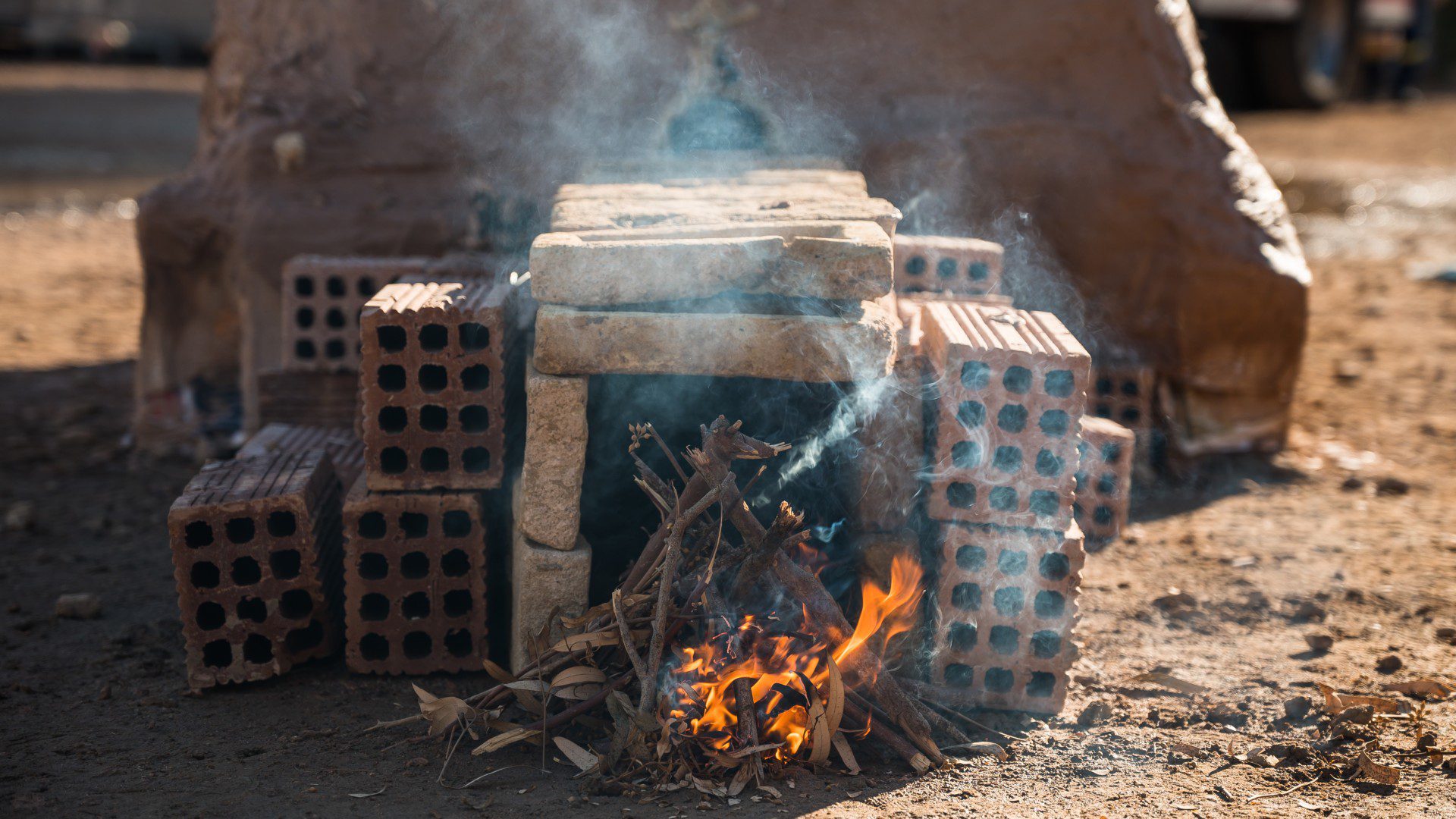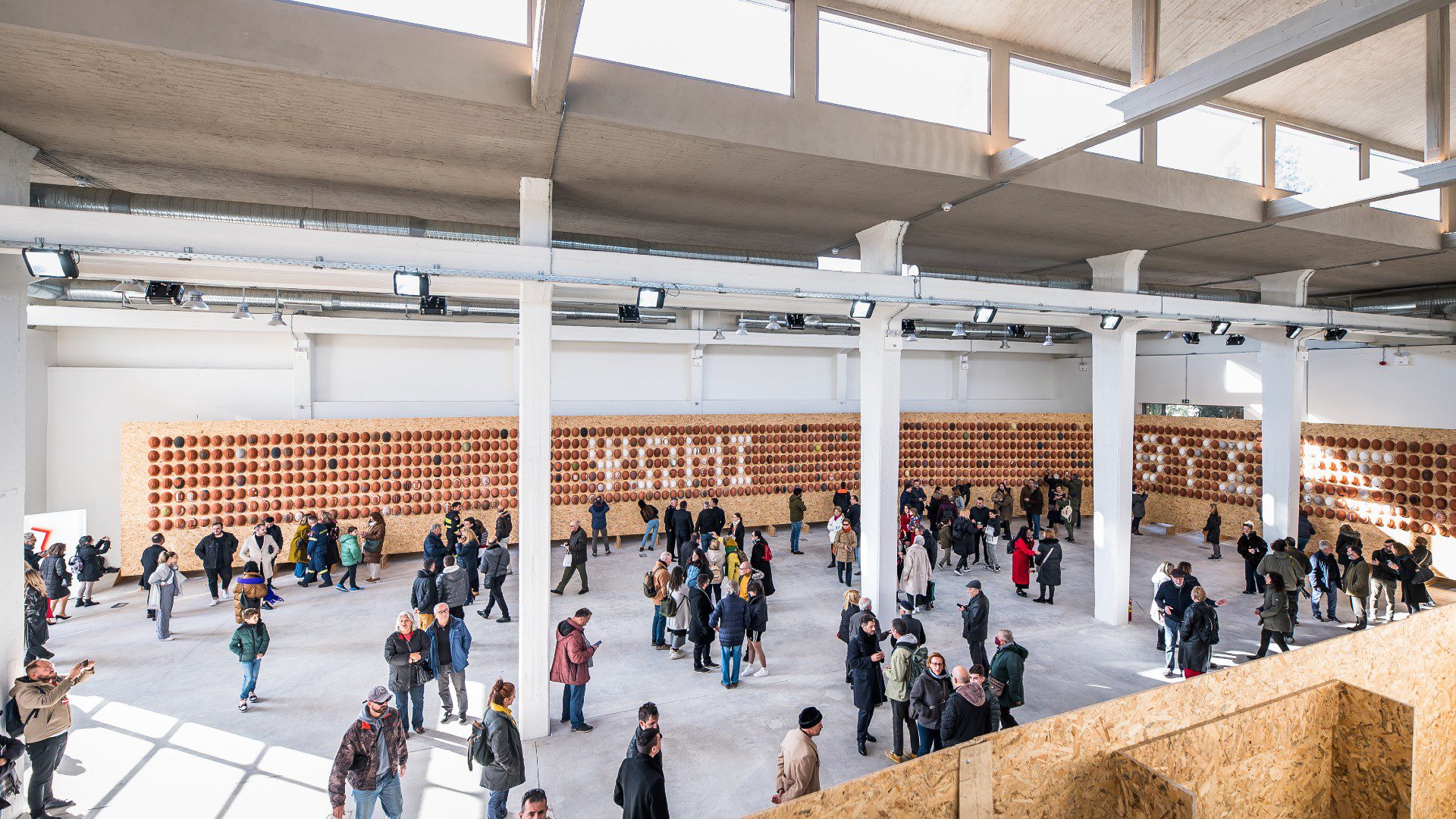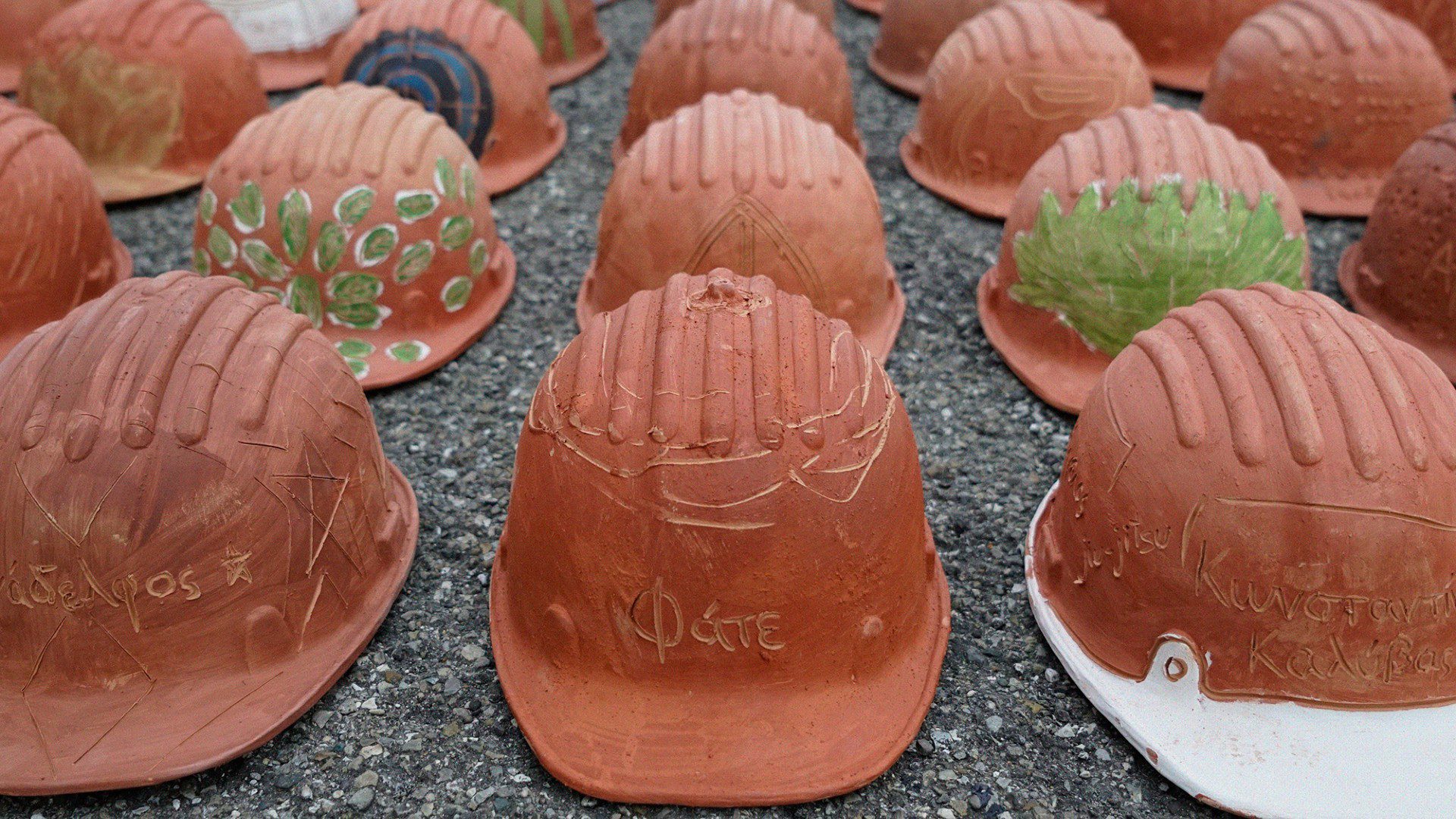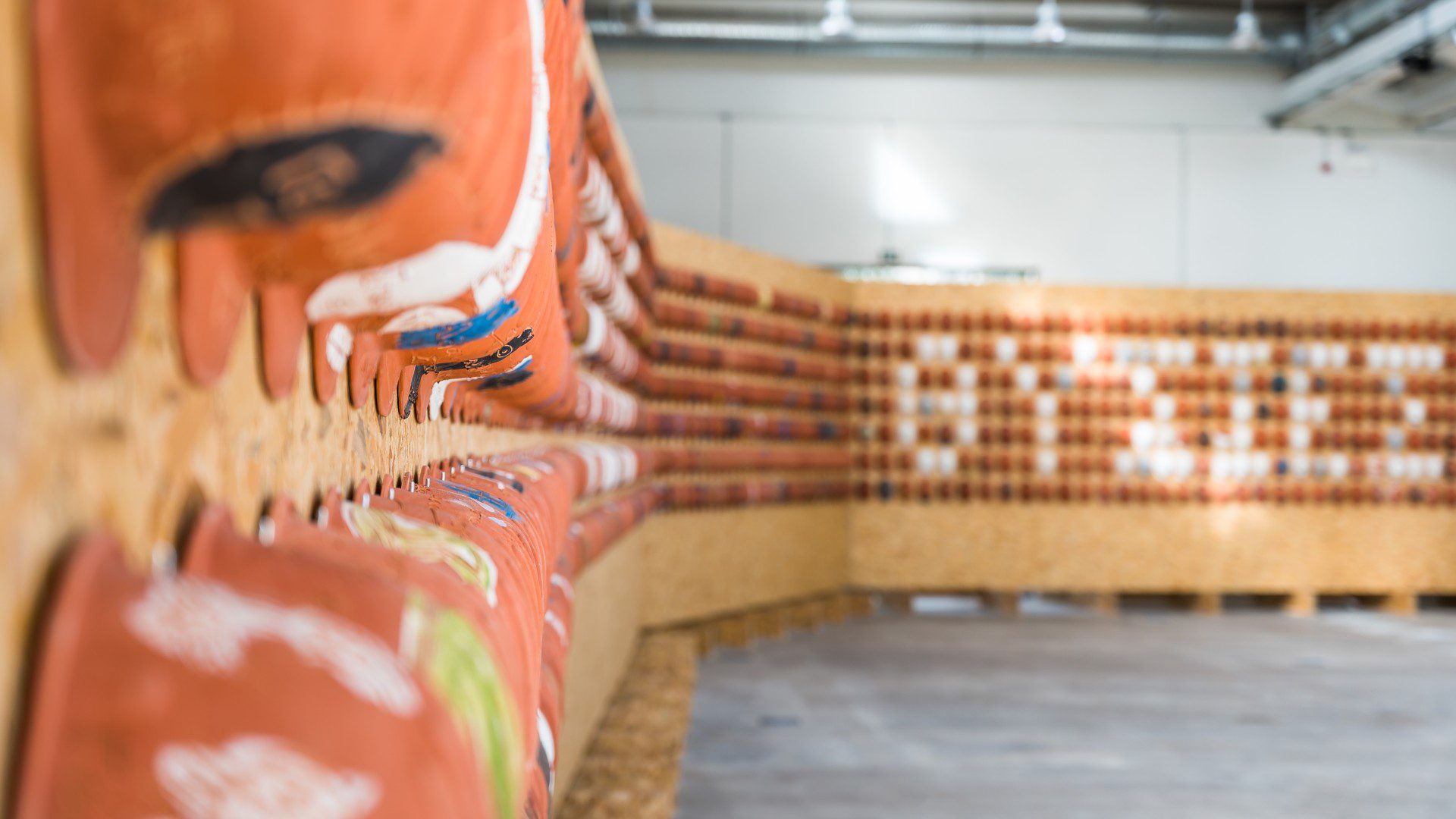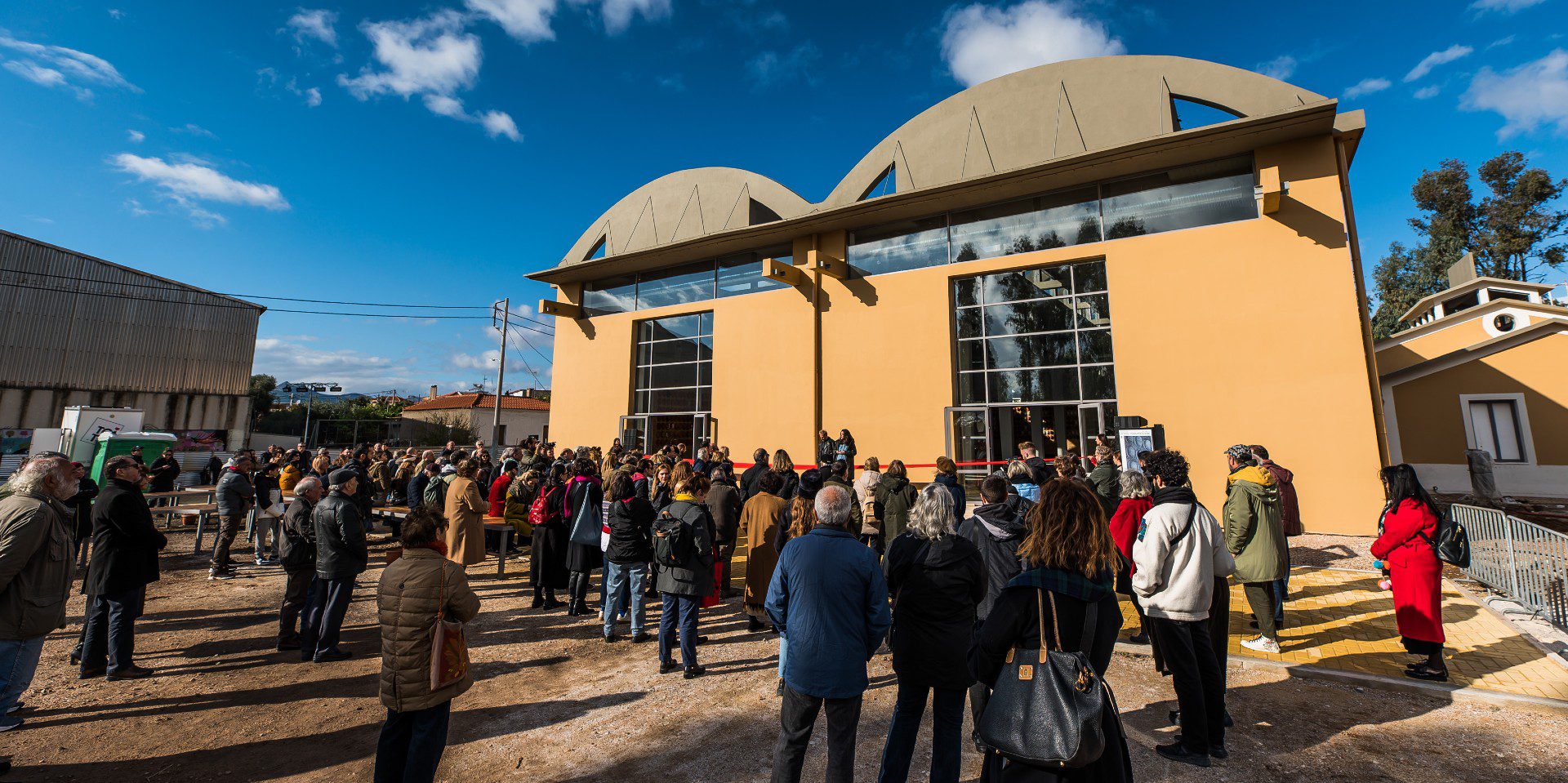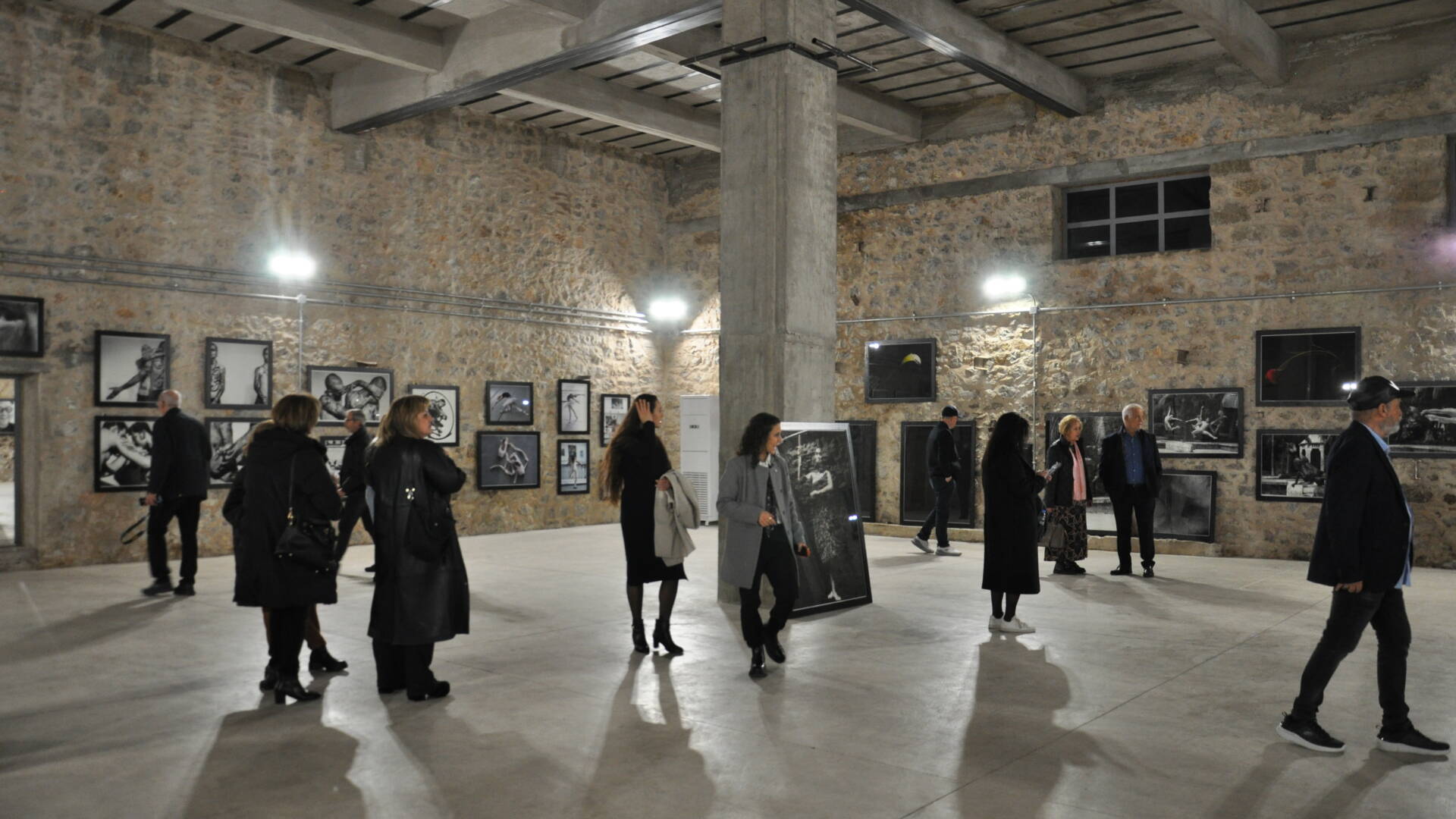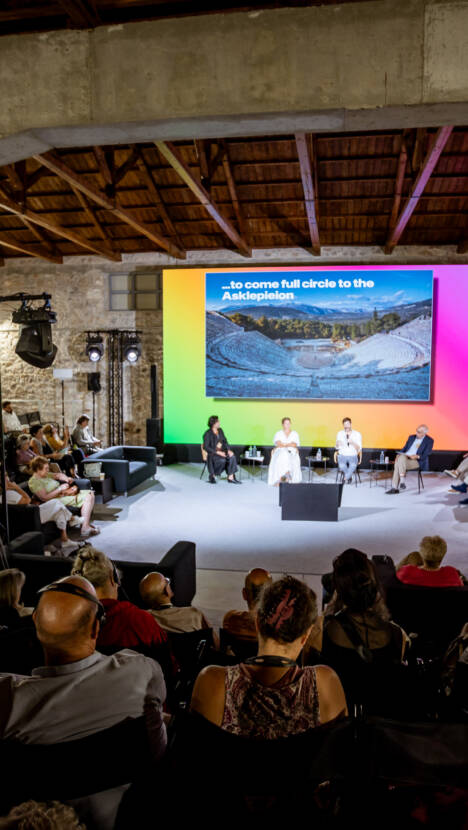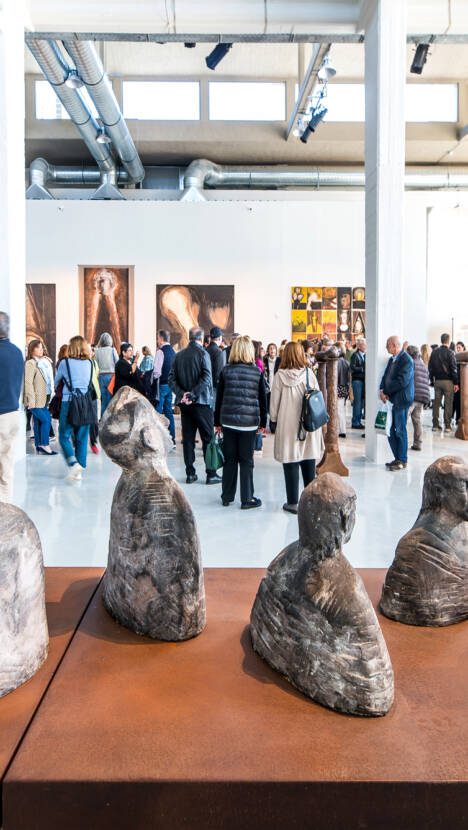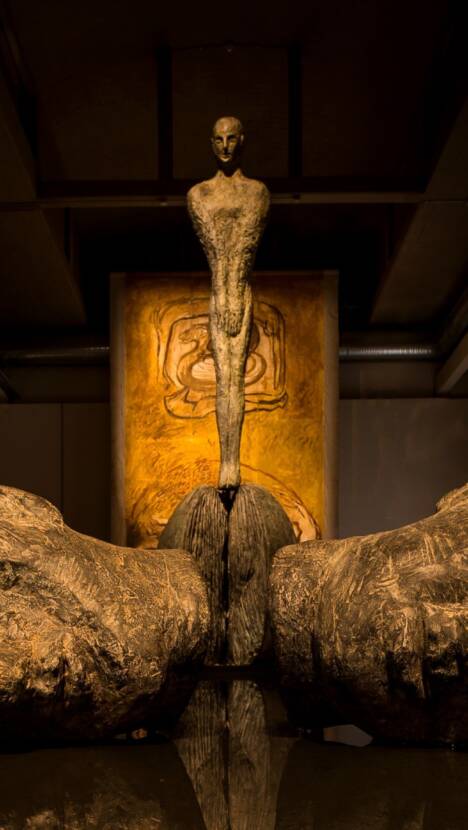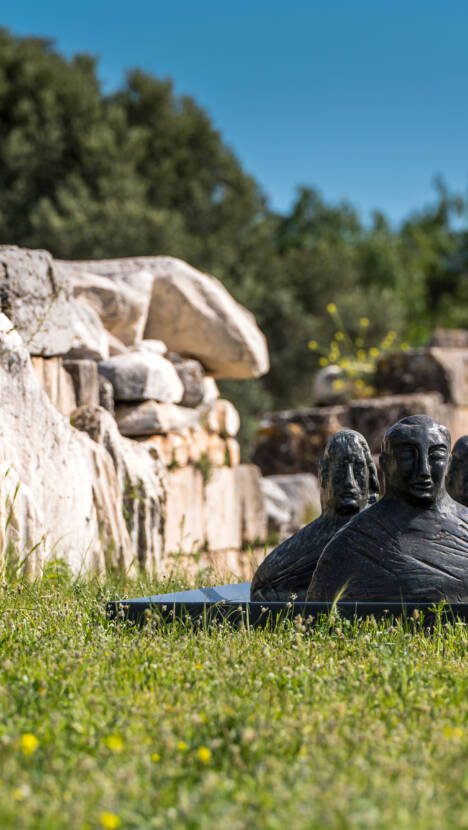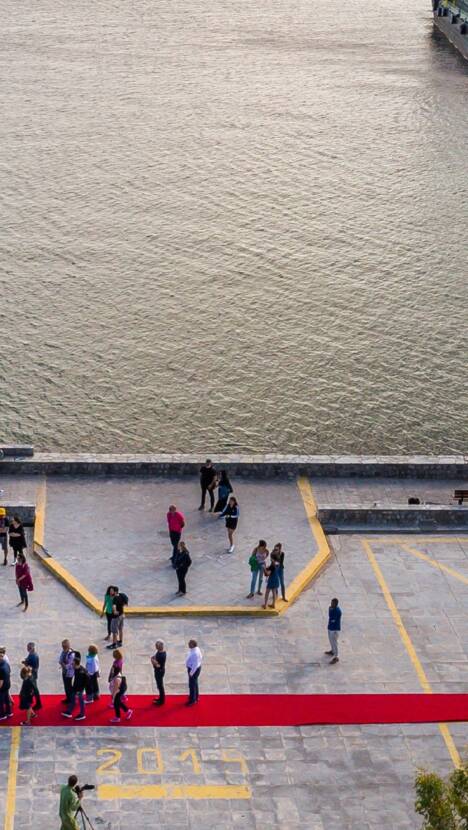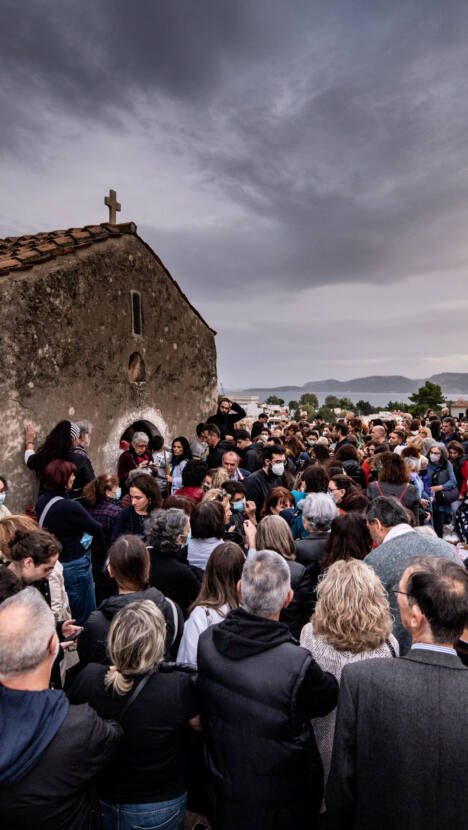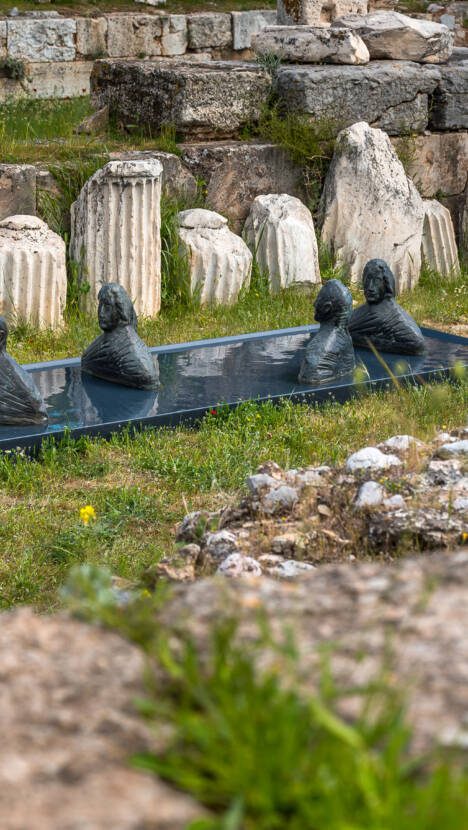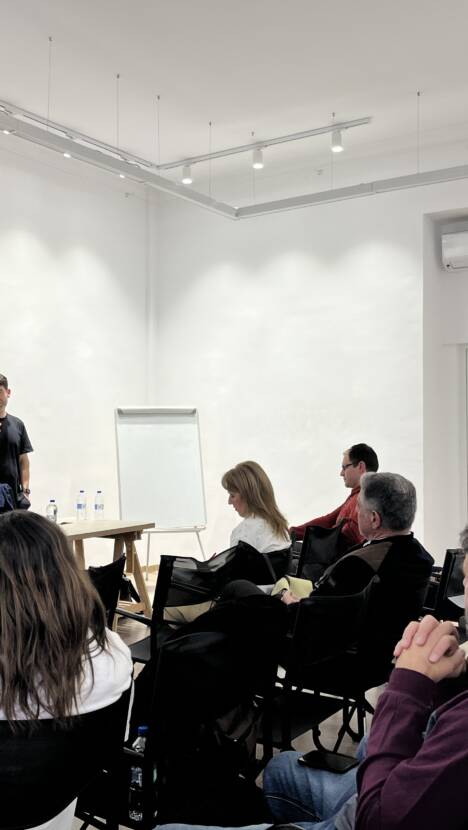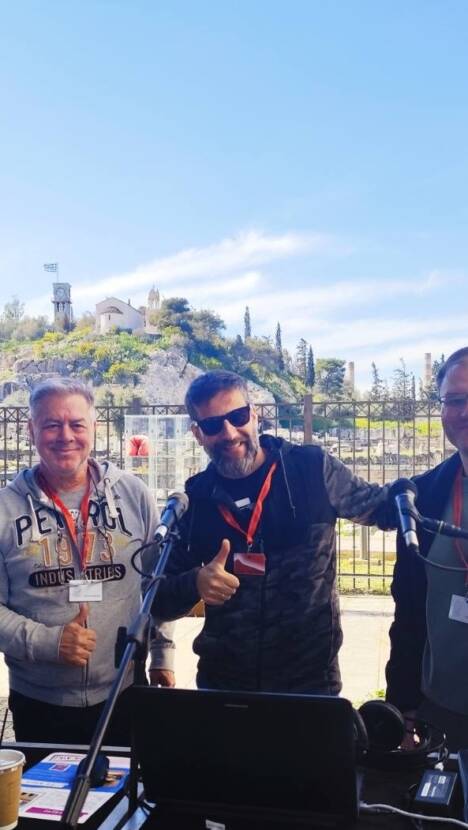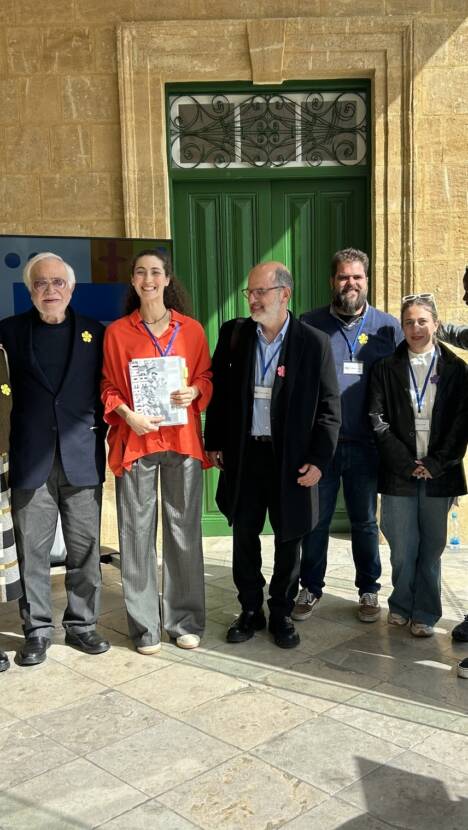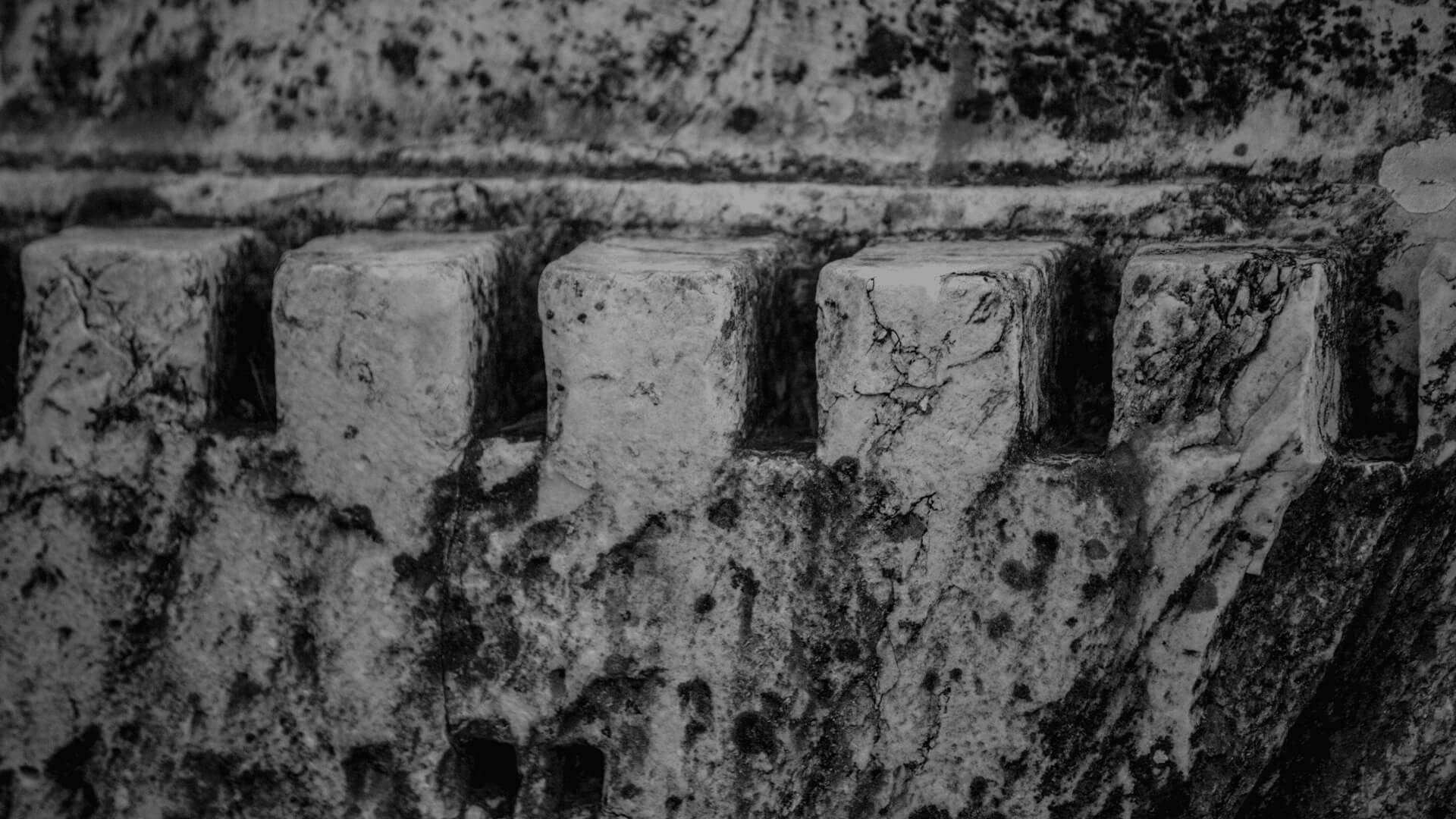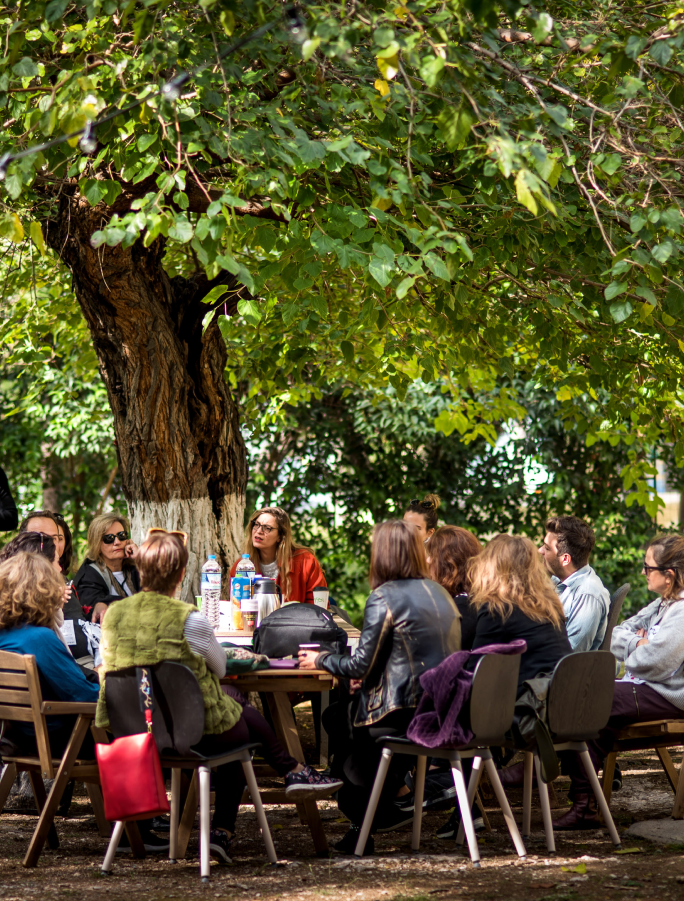During the last weeks of the exhibition, specifically from Sunday, January 21, and every Wednesday and Sunday, Juan Sandoval will be at IRIS factory to distribute the clay helmets he created for participants and inhabitants of Eleusis! This way, the project will not only continue to exist but will also remain alive in the city for which it was created.
Dates:
Wednesday, January 24 & 31, February 7 | 17:00 – 20:00 Sunday, January 21 & 28, February 4 & 11 | 13:00 – 20:00
More than 2,000 helmets for an exhibition – tribute to the people who work in Elefsina and the broader West Attica region. The project consists of 2,000 handmade clay helmets that refer to the local workforce and the concept of labour through the eyes of the inhabitants of the Thriasian Plain. Sandoval visited local factories where he had the opportunity to talk with workers, while after an open call to the local community more than 1,000 active or retired workers participated in the project by filling in a questionnaire with their personal information, names of family members, hobbies, preferences. These data together with words related to the concept of labour collected among the inhabitants of Elefsina formed the basis for the artist to decorate the helmets using carving and painting techniques. All the helmets are exhibited in a large-scale installation accompanied by a soundscape created exclusively for the project by the international sound artist Giorgos Moraitis to make up a unique experiential experience for the visitor, with multiple references to the industrial environment of the area.
Working around the world with communities and associations, Juan Sandoval develops participatory projects that engage in a dialogue with the social context in which they are created. In recent years, his research has focused on the idea of manual labour and the role of the worker in processes of economic, political and social transformation. With Mystery 111 Eleusis Terracotta Army, the artist presents the results of the toil of thousands of people who transformed, within a few decades, an agricultural land into one of the country’s largest industrial centres, the multiple effects of this transformation and the constant transitions, the rapid changes that are still taking place today.
The helmet is chosen as the central feature of the project, since it is an object that is used daily to protect workers in all sectors of industrial activity; also, the material from which the helmets are made − clay − alludes to the everyday and ritualistic objects that have been found in the archaeological site of Elefsina. Thus, it functions as a symbol linking the city’s contemporary industrial past and present with its ancient history.
At the end of the exhibition, the clay helmets will be distributed to the participants, in this way, the artwork will remain in the city together with the people with whom it was created.
At the same time, a series of ceramics workshops will be held for local residents, while the clay objects created by the participants will be fired in an ephemeral kiln that will be located at the IRIS factory on the opening day. More information will be announced soon.
Mystery 111 Eleusis Terracotta Army is a project that manages to activate the local community of the area, the city and the broader West Attica region, a project that raises questions about the nature, evolution and future of work and, at the same time, about the value of culture today in an industrial city; a project that provokes and challenges.
Mystery 111 Eleusis Terracotta Army is implemented in the framework of the National Recovery and Resilience Plan Greece 2.0 with funding from the European Union – NextGenerationEU.

